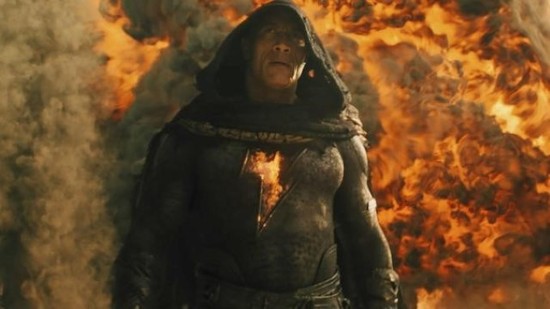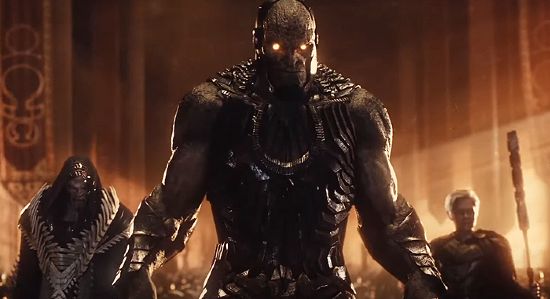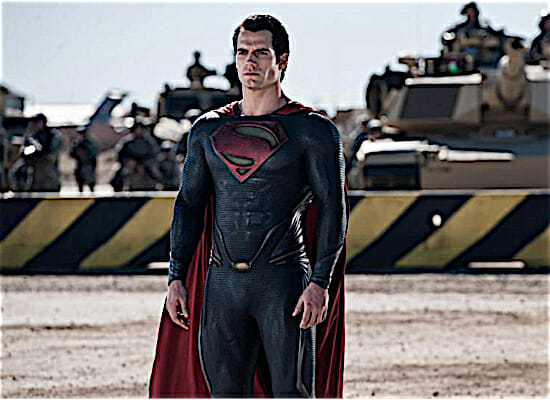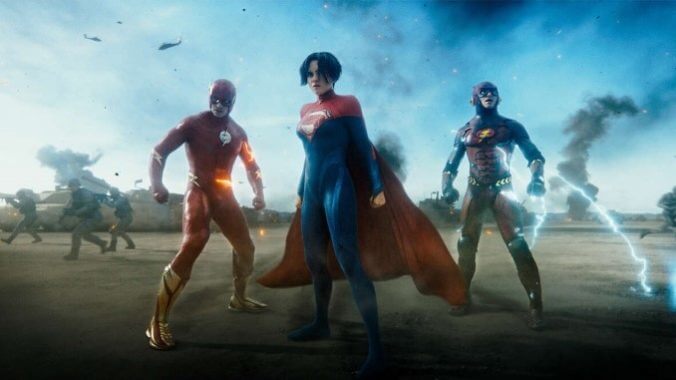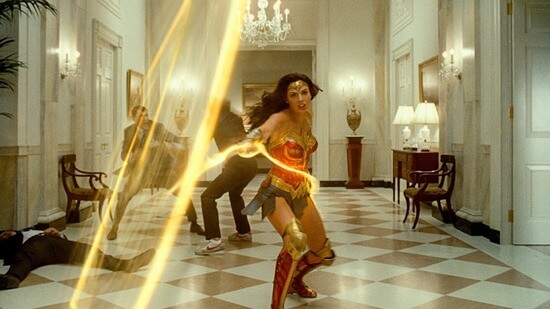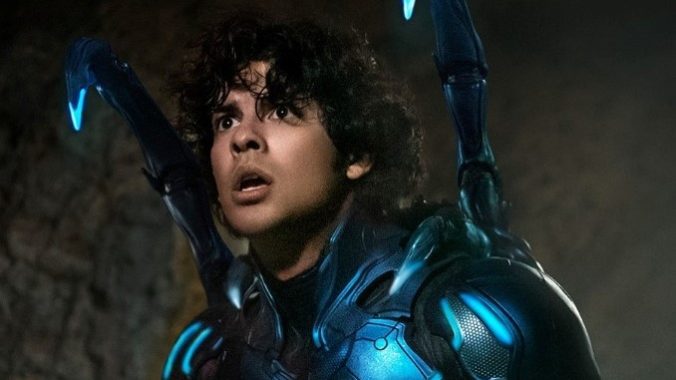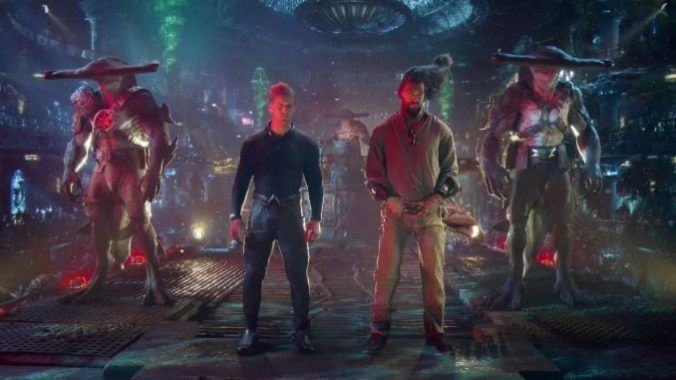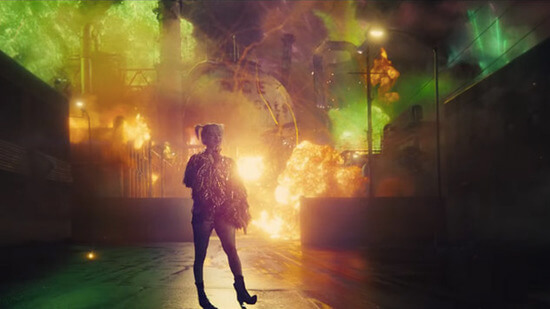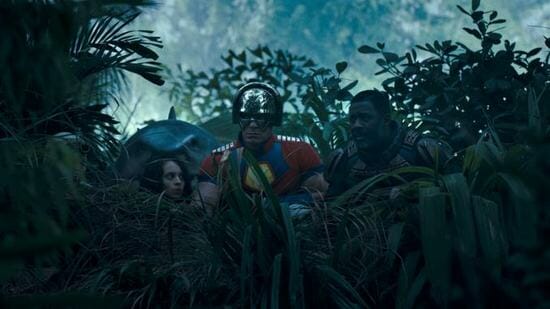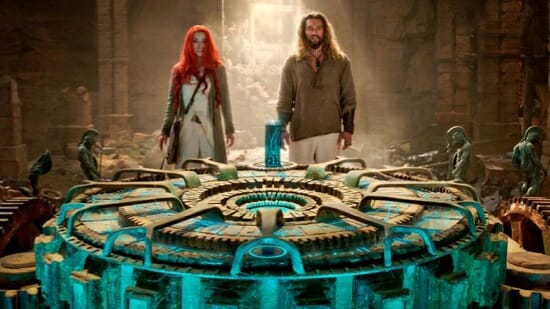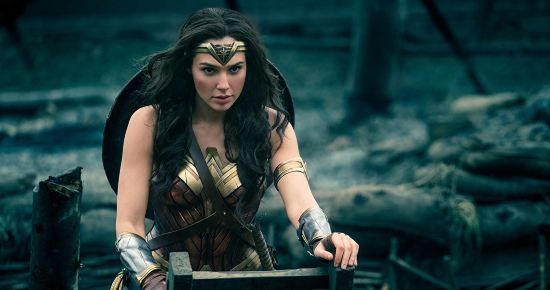Every DCEU Movie, Ranked
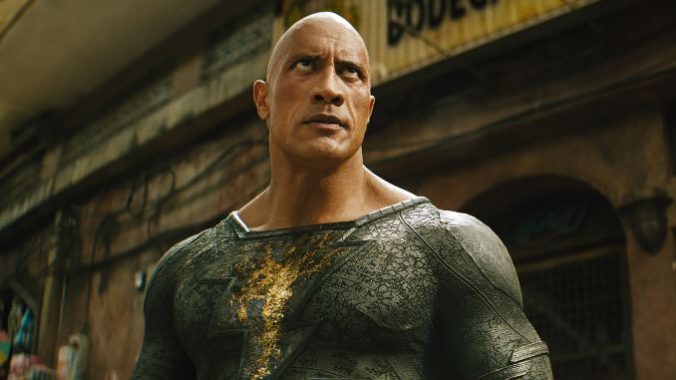
Since its belated 2013 inception in the wake of Christopher Nolan’s mega-successful standalone Dark Knight trilogy, DC Comics’ attempt at a big-screen cinematic universe has been overshadowed and outranked by its zippier Marvel counterparts (as well as the past successes of their own Batman and Superman series). The DC Extended Universe—its accidentally-applied “DCEU” moniker a symbol of its reputation for haphazard brand triangulation—has had plenty of big hits, often on par with the MCU. But the clockwork consistency of the Marvel machine has made DC’s litany of false starts, retoolings and auteur experiments look like the flailing of desperate imitators. Yet it’s this same quality that makes ranking the DCEU movies (and the movies themselves) a compelling experiment.
Here’s a weird, neat fact: Of the movies on this list, only one is a traditional part-two-style sequel. More of those are coming soon, but in the meantime, maybe it’s better to enjoy the way that DC superheroes aren’t bound by neatly ordered sub-franchises and well-regulated team-ups. Their outsized characters can maintain backstory (James Gunn’s version of Suicide Squad doesn’t retcon the one everyone hated!) while jumping through more eclectic iterations of their messy, inconsistent universe. Some of these movies are middling equivalents of lower-tier MCU; some of them are disastrous instances of auteurism and big-studio mandates colliding with an earth-shaking crash. But plenty of them are true to the eclecticism of funnybook art, and one or two might rank among the best superhero movies ever made.
Here are all the films of the DCEU, ranked:
16. Batman v Superman: Dawn of Justice (2016)
Director: Zack Snyder
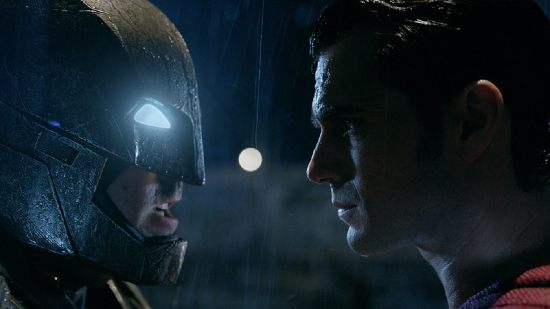
If it achieves anything, Zack Snyder’s messy, badly plotted and awkwardly paced film proves that prepping for a shared universe is no simple task, no matter how easy Marvel makes it look. This seems true even when one is starting with one as established and as powerfully etched into the popular consciousness as DC’s. It’s bad enough that Snyder and company dutifully preserve and transfer many of the excesses and offenses from Man of Steel to Batman v. Superman: Dawn of Justice—the wildly out-of-character behavior by our heroes and a super-mobile Lois Lane to prod the plot along when needed, etc.—the film also is filled with plot holes large and small that will niggle at the mind of those viewers who like their fantasy films to make sense at least within the confines of the worlds they portray. Ultimately, Batman v Superman: Dawn of Justice serves as a reminder of why so many people dislike the Snyderian take on the DC universe—and as a reason to look forward to the solo Wonder Woman film.—Michael Burgin
15. Suicide Squad (2016)
Director: David Ayer
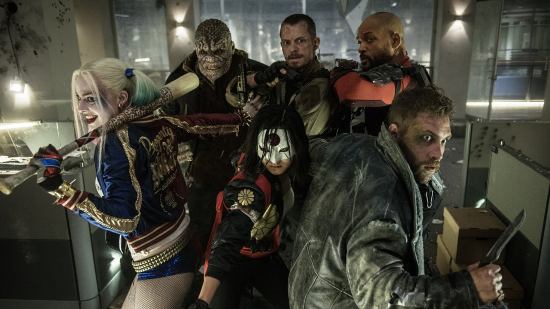
The premise for Suicide Squad is as simple as it is indelible, a re-brand of The Dirty Dozen filled out with an undercard of DC’s most naturally colorful villains and anti-heroes. Director David Ayer slips into this framework with ease, introducing Amanda Waller (Viola Davis) as she flips through her dossiers, allowing Ayer to offer a slick montage of each candidate’s greatest hits before, minutes later, Waller is in front of the criminals laying out a deal of commuted sentences for off-the-books operations. Falling into same the pratfalls of Ayer’s previous effort, Fury, Suicide Squad is another case where story elements are continuously piled on in the hopes that a coherent narrative arc will emerge. Individual moments land with nearly every character, especially Deadshot (Will Smith) and Harley Quinn (Margot Robbie), but despite being a firmly character-based film, it lacks a through line. In action scenes, Ayer is exceedingly generous, allowing each character a turn in the limelight, but the film is constantly muddling its own sense of purpose, making plot decisions that feel improvisatory by its end. It’s actually kind of perfect that Suicide Squad would have the most problems with defining what a hero is and what its ersatz heroes are supposed to be. These characters have been told they’re bad their whole life. If only the film knew how to say anything else.—Mike Snydel
14. Black Adam (2022)
Director: Jaume Collet-Serra
Black Adam isn’t going to change the DCEU’s sputtering trajectory. If anything, the latest entry highlights the DC franchise’s worst traits, then doubles down on the incomprehensibility. Dwayne Johnson’s first outing as the ancient super-powered antihero is a clanging dud that swaps out internal logic and compelling characters for poorly-executed spectacle and hopes you won’t notice the difference. After a battle with Kahndaq’s power-mad king, Black Adam is put to rest for five millennia, during which time Kahndaq is overtaken by a series of tyrannical invading forces. He’s re-awakened by Adrianna (Sarah Shahi), an archeologist who wants Black Adam to fight off the Intergang, Kahndaq’s current oppressors. Black Adam’s resurrection also catches the attention of the Justice Society of America, led by Hawkman (Aldis Hodge), who employs his newly-assembled team to get the volatile meta-human under control. It’s easy to watch Black Adam and feel you’ve missed an important entry somewhere that introduced all the characters, or at least gave us some context for them. You haven’t, the film just doesn’t have the patience to do that work. Not only for Black Adam and Hawkman, but the rest of the Justice Society of America: Doctor Fate (Pierce Brosnan), Atom Smasher (Noah Centineo) and Cyclone (Quintessa Swindell). The result is two hours of mounting conflict between characters we have no reason to care about, with motivations so unclear that the movie has to grind to a halt every 20 minutes so the characters can explain what’s going on. Weirdly, the biggest cipher here is Black Adam himself, who we get lots of exposition about, but very little insight. Johnson’s a bit like a Terminator with a single directive: You just have to point him in the direction of the baddies and watch him go to town. Some of this changes in the third act, but it’s too little too late. To distract from the lack of dynamic characters or understandable plot, director Jaume Collet-Serra clogs the screen with action sequences that aren’t choreographed so much as made up of a bunch of single shots smashed together. There’s potential in Black Adam for an interesting thematic conversation about the jurisdiction and ethics of superheroes, but that gets sadly buried under the cascade of rubble from the buildings the JSA, Intergang soldiers and Black Adam destroy as they battle. It all adds up to another frantic grab by a studio desperate to wring success from a superhero universe they’ve never fully understood.—Abby Olcese
13. Shazam! Fury of the Gods (2023)
Director: David F. Sandberg
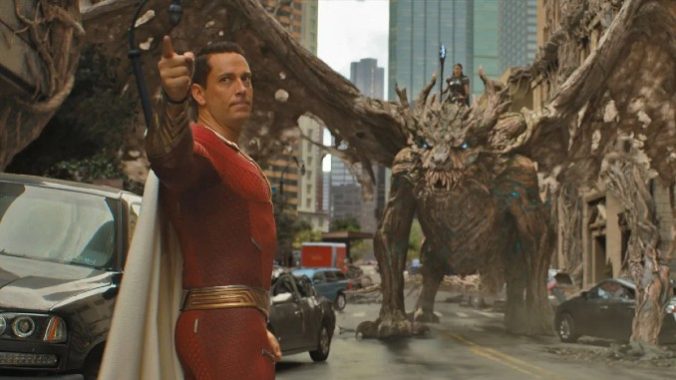
With the first Shazam!, director David F. Sandberg and writer Henry Gayden capitalized on the abject joylessness of DC films by making the first half of their movie into a funny viral-video riff on coming of age in a superpowered world. The second half devolved into the same messy tropes that’ve come to define superhero films as a form, but there was a spark. There was personality. Four years later, Fury of the Gods is no longer a novelty. Comic characters poking fun at themselves is the standard; the person doing it best at DC, James Gunn, is now running their superhero business. That leaves Sandberg and Gayden (whose script was co-written, tellingly, by resident Fast & Furious scribe Chris Morgan) as representatives of the blockbuster franchise version of the Peter principle. They haven’t been promoted past their point of competence, but rather were competent and creative enough to see their competence and creativity consumed by the expansive demands of the Superhero Sequel Model. Shazam! wasn’t the most exciting or heartfelt of superhero movies, but it knew how to use its gimmick. Fury of the Gods grows in scope and scale, drowning that gimmick in mediocrity. Like I said, it’s easy to imagine its creators empathizing with a hero feeling out of his depth—especially when the scene directed with the most joy is a crass mid-movie Skittles commercial. One of the biggest takeaways from Fury of the Gods is that Sandberg probably just wants to direct Super Bowl ads. If only Fury of the Gods was able to use any of this insight. Fury of the Gods pits a family of six young heroes against a mythic sisterhood of three villains—something was going to fall through the cracks. You just wish it wasn’t everything that made the first movie watchable. Fury of the Gods has been asked to abandon the parody completely—or, rather, what was once a parody has been corrupted into convention—and in response, its filmmakers have fully turned their project over to the rigid confines of the template. This is the fate that awaits all indie filmmakers snapped up by these machines, the hopes of working within the system dashed against the realities of the cinematic assembly line. As long as blockbuster filmmakers are effectively going to work in soulless, joyless factories overseen by flowchart-loving foremen, this kind of milquetoast settling is, to use the vocabulary of superhero movies, inevitable.—Jacob Oller
12. Justice League (2017)
Director: Zack Snyder
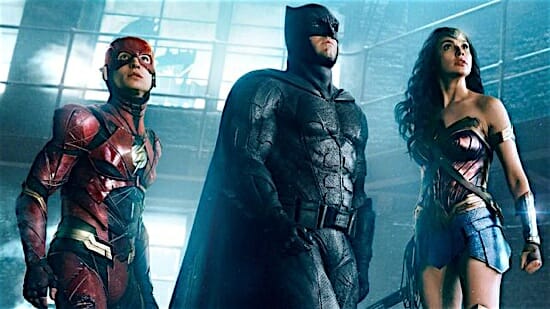
The real difference between Justice League and Snyder’s previous DCEU entries is that the distinct Snyder-ness of it all has been neutered, chastised even. The movie is under two hours, for god’s sake, its many typical philosophical conversations generally snipped and tucked, mythology abridged into brisk expositional conversations or relegated to—in the case of Bruce Wayne (Ben Affleck) identifying Aquaman (Jason Momoa)—literally seeing everything one needs to know on a wall mural. All in all, Justice League seems to want to just get on with it, which is probably as good a sign as any that anyone who complained Zack Snyder’s films are bloated, ponderous, humorless slogs of pretentious “adult” populist entertainment will find his latest blockbuster operates at a clip much more—dare we say it—delightful that anything he’s done before. Justice League may be a more functional film that its predecessors, but it also lacks the style and go-for-broke big ideas that made Batman v Superman such a fascinating shitshow. In the place of Snyder’s all-consuming hubris is something seemingly committee-created, too aware of past mistakes to try anything that could make the film something more than a thoroughly mediocre $300M investment.—Dom Sinacola
11. Shazam! (2019)
Director: David F. Sandberg
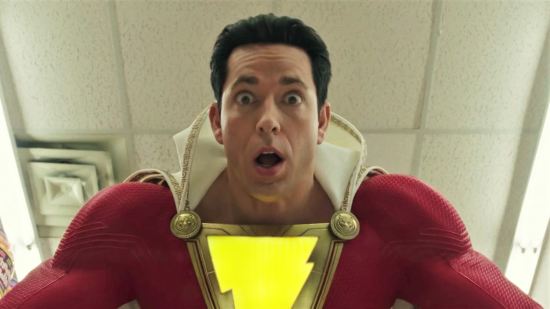
The best thing one can say about Shazam! is that, following on the fins of the wonderfully extravagant and amazingly stupid Aquaman, the latest DC movie is one more sign to assure the proletariat that the imprint has permanently dislodged its head from the asshole of Zack Snyder’s Murderverse. While Wonder Woman mused that, hey, maybe a DC movie need not labor over traumatized backstories and hypermasculinized mommy issues, and Aquaman suggested that blockbuster movies can have things like “color” and “humor,” Shazam! synthesizes those mommy issues into a positive treatise on family, doubling down on the jokes and bright primary shininess. The plot, by-the-numbers, floats somewhere between a Spielberg coming-of-age adventure, a Big reboot and a late-’80s horror comedy—think The Monster Squad in that it’s intended for kids but is too old for its ostensible demographic. If only Shazam! were as much a herald as its DCEU forebears, for better or ill, a sign of something new and exciting to come. It’s not. It is, despite its surprisingly gruesome violence, little more than another superhero movie that will make more money than the GDP of a small island nation. Leaning real hard into the jokes about horny teenage boys and meta-skewerings of superhero films, Shazam! can’t help but comment on its genre ad nauseam, though, unlike Deadpool, it never risks arguing against its own existence. It’s, more often than not, a very funny movie, and a superhero film with a budget under $100M is a (sigh—sorry, Mom) refreshing development for the genre. Plus, a diverse cast is always welcome, even if headlined by Zachary Levi, who must realize how goddamn lucky he is to get the one remaining superhero role where it conceptually pays off to be a generically attractive white guy.—Dom Sinacola
-

-

-

-

- Curated Home Page Articles By Test Admin October 21, 2025 | 3:10pm
-

- Curated Home Page Articles By Test Admin October 21, 2025 | 2:57pm
- Urls By Test Admin October 21, 2025 | 2:57pm
- Curated Home Page Articles By Test Admin October 21, 2025 | 2:55pm
-

-

-

-

-

-

-

-

-

-

-

-

-

-

-

-

-

-

-

-

-

-

-

-

-

-

-

-

-

-

-

